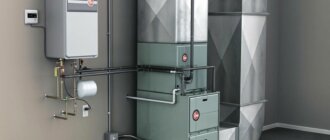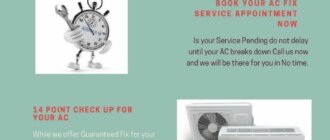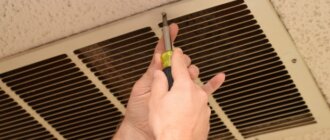Prepare for Summer with Spring HVAC Maintenance
Spring has arrived, and Summer is just around the corner! It’s time to prepare for warmer weather, longer days, and all the fun that comes with it. But before you start planning your pool parties and barbecues, make sure your HVAC system is ready too. Spring HVAC maintenance is essential for keeping your cooling efficiency at peak performance during the hot months ahead. In this blog post, we’ll discuss why spring HVAC maintenance matters and share some tips on how to get your system in tip-top shape for summer so you can enjoy a cool and comfortable home all season long!
Why Spring HVAC Maintenance Matters
Spring is the perfect time to schedule maintenance for your HVAC system. After a long winter of constant use, your heating and cooling system may need some attention before the hot summer months arrive. Here are some reasons why spring HVAC maintenance matters.
Increased Efficiency
Regular maintenance can improve the efficiency of your HVAC system. This means it will use less energy to cool or heat your home, resulting in lower utility bills. You’ll also be doing your part for the environment by reducing energy waste.
Longevity of the HVAC System
By taking care of small issues during regular maintenance, you can extend the life of your HVAC system. Neglecting routine service could lead to bigger problems down the road that require expensive repairs or even complete replacement.
Reduced Energy Costs
A well-maintained air conditioning unit can reduce energy costs by up to 15 percent per year according to Energy Star estimates. Regular cleaning and tuning ensure that all components are working optimally so they don’t have to work as hard to achieve desired temperatures.
Scheduling spring HVAC maintenance is essential for improving efficiency, extending lifespan, and reducing energy costs over time. Don’t wait until summer arrives when repair companies start getting busy – book an appointment today!
Essential Spring HVAC Maintenance Tasks
As the weather begins to warm up, it’s crucial to ensure that your HVAC system is in top condition for the summer months. Here are some essential spring HVAC maintenance tasks that you should perform:
Cleaning and Replacing Air Filters
Cleaning and replacing air filters is one of the essential spring HVAC maintenance tasks that can have a significant impact on your cooling efficiency. Over time, air filters collect dust, dirt, and other debris that can clog them up and prevent proper airflow through your system.
If you don’t clean or replace your air filters regularly, it can lead to decreased efficiency in your HVAC system. When the airflow is restricted due to dirty or clogged-up filters, it puts more strain on the system to work harder than necessary to maintain comfortable temperatures throughout your home.
Regularly cleaning or replacing your air filters not only improves cooling efficiency but also helps prolong the lifespan of your HVAC unit. When there’s less strain on the system due to increased airflow from clean filter replacements, it reduces wear and tear on internal components over time.
It’s recommended that homeowners change their AC filter every 1-3 months depending on usage frequency and factors such as pets or allergies. Filters should be checked at least once a month during peak usage times like summer when they may need replacement sooner. Changing out old dirty ones for new quality ones ensures better performance by trapping allergens and pollutants while maintaining efficient operation all season long!
Checking and Cleaning the Condenser Unit
The condenser unit is a vital part of your HVAC system, responsible for releasing heat that has been absorbed from inside your home. Over time, the condenser unit can become dirty and clogged with debris such as leaves, dirt, and grass clippings. This can reduce the efficiency of your HVAC system and cause it to work harder than necessary.
To ensure optimal cooling efficiency this summer, it’s important to check and clean the condenser unit during spring maintenance. Start by turning off power to the unit at the breaker box or disconnect switch. Then remove any debris surrounding the unit before carefully cleaning its exterior with a hose or soft brush.
Next, open up the metal cabinet that houses the fan motor, capacitor, and compressor components of your condenser unit. Use a soft brush or vacuum cleaner with a soft-brush attachment to gently clean away any dust or debris that may have accumulated on these parts.
If you notice that there is excessive damage or wear on any parts while performing routine cleaning tasks on your own, then it’s best to contact an HVAC professional for further assistance in ensuring the optimum performance of your system when temperatures start rising next season.
Examining the Thermostat
Examining the thermostat is a crucial task when it comes to HVAC maintenance. Your thermostat regulates the temperature of your home, so it’s essential that it’s functioning correctly.
Firstly, check that your thermostat is level and securely attached to the wall. If it isn’t, this can cause inaccurate readings and affect your HVAC system’s performance.
Next, test your thermostat by setting it to a few degrees higher or lower than the current room temperature. If you notice any delays in response time or inconsistencies between the set temperature and actual room temperature, there may be an issue with the wiring or programming.
If you have an older manual thermostat, consider upgrading to a programmable one. This can save you money on energy costs by allowing you to adjust temperatures based on your schedule.
In addition, make sure that nothing is blocking or obstructing your thermostat. Objects such as furniture or curtains can prevent accurate readings and lead to inefficient heating or cooling.
Examining and maintaining your thermostat should not be overlooked in spring HVAC maintenance tasks for optimal cooling efficiency and HVAC performance during the hot summer months ahead.
Checking Ductwork for Leaks
One essential task in spring HVAC maintenance is checking the ductwork for leaks. Over time, your ducts can develop cracks or holes, which can lead to significant energy loss and reduce cooling efficiency. If your air conditioning system is working harder than it should be due to leaky ducts, you could end up with higher energy bills.
To check for leaks, start by inspecting visible sections of your ductwork for any visible gaps or tears. You can also use a smoke pencil or infrared camera to help detect leaks that may not be immediately apparent.
Once you have identified any problem areas, seal them using appropriate materials such as mastic tape or metal-backed tape. Avoid using standard duct tape as it tends to deteriorate quickly and doesn’t provide long-lasting seals.
In addition to sealing the leaks themselves, consider insulating your ducts if they are located in unconditioned spaces like attics or crawl spaces. This will help prevent thermal losses through conduction and improve overall performance.
By taking the time to check and address any issues with your ductwork during spring HVAC maintenance, you can ensure that cool air stays where it’s supposed to – inside your home!
When to Call a Professional for HVAC Maintenance
While there are some HVAC maintenance tasks that homeowners can handle on their own, there are certain situations where it’s best to call in a professional technician. Here are some signs that it’s time to bring in the experts:
Strange Noises or Smells
If you notice any unusual smells or sounds coming from your HVAC system, this may indicate a serious problem that requires professional attention. Strange odors or noises could be caused by anything from a clogged air filter to a malfunctioning component within the unit.
Inconsistent Temperatures
If you’re experiencing inconsistent temperatures throughout your home despite adjusting the thermostat settings, it may be time to seek help from an HVAC professional. This could indicate issues with ductwork or other problems that require specialized expertise and tools.
Increased Energy Bills
If you’ve noticed an increase in your energy bills without any corresponding change in usage patterns, this could also signal trouble with your HVAC system. A technician can conduct an energy audit and pinpoint areas of inefficiency or damage.
Regular preventative maintenance is key to keeping your HVAC system running smoothly over its lifespan. An experienced technician can perform essential tasks like cleaning coils and checking refrigerant levels to ensure optimal performance and longevity for your equipment.
Conclusion
Proper spring HVAC maintenance is crucial for preparing your home for the summer months. By taking care of your HVAC system now, you can ensure that it operates at maximum efficiency when you need it most. Regular maintenance not only increases the longevity of your unit but also reduces energy costs and prevents breakdowns.
Remember to schedule an annual check-up with a professional technician who can perform all necessary tasks and identify any potential issues before they become costly repairs. DIY maintenance tasks like cleaning air filters and checking ductwork are important but should never replace annual professional service.
By following these essential spring HVAC maintenance tips, you’ll be well on your way to enjoying a comfortable and cost-effective summer season in your home!



